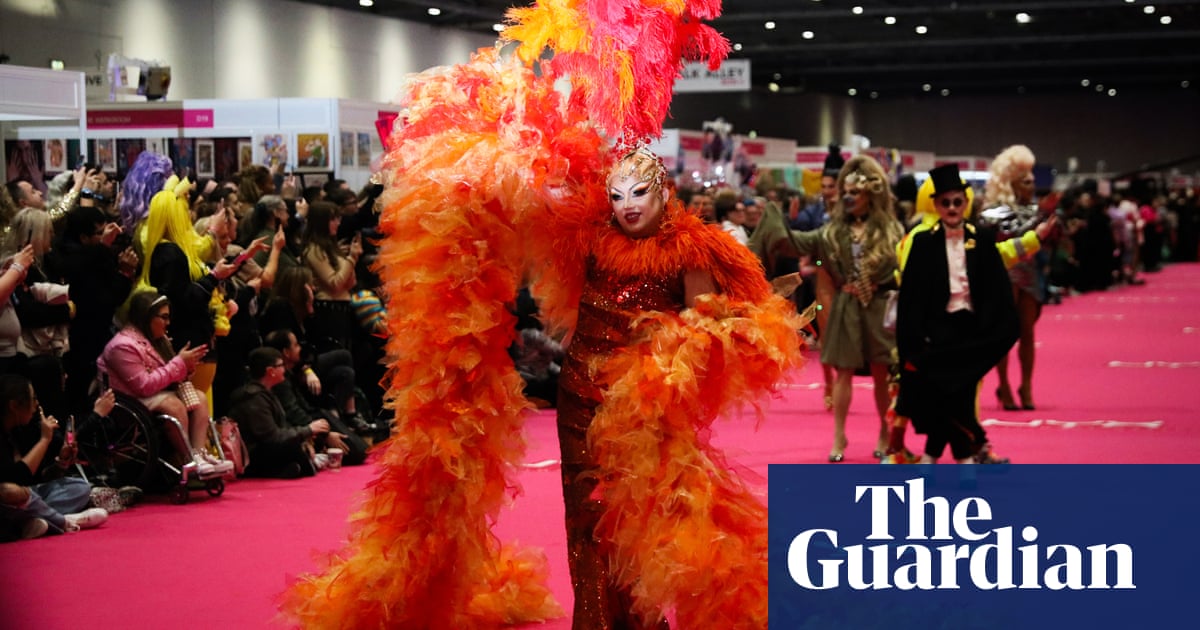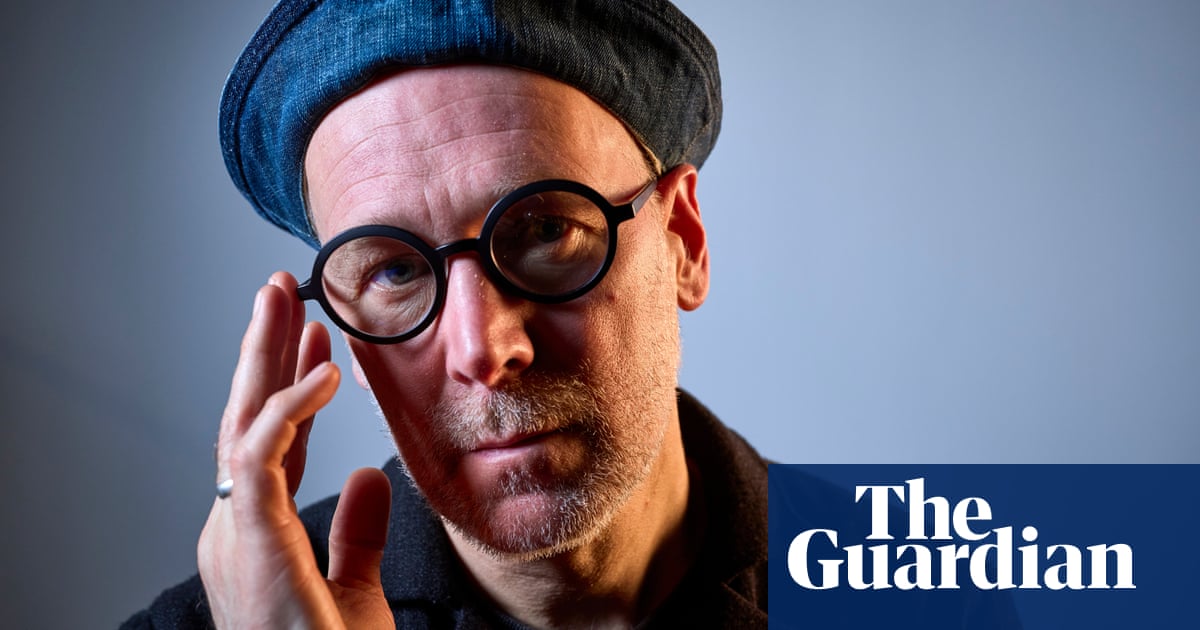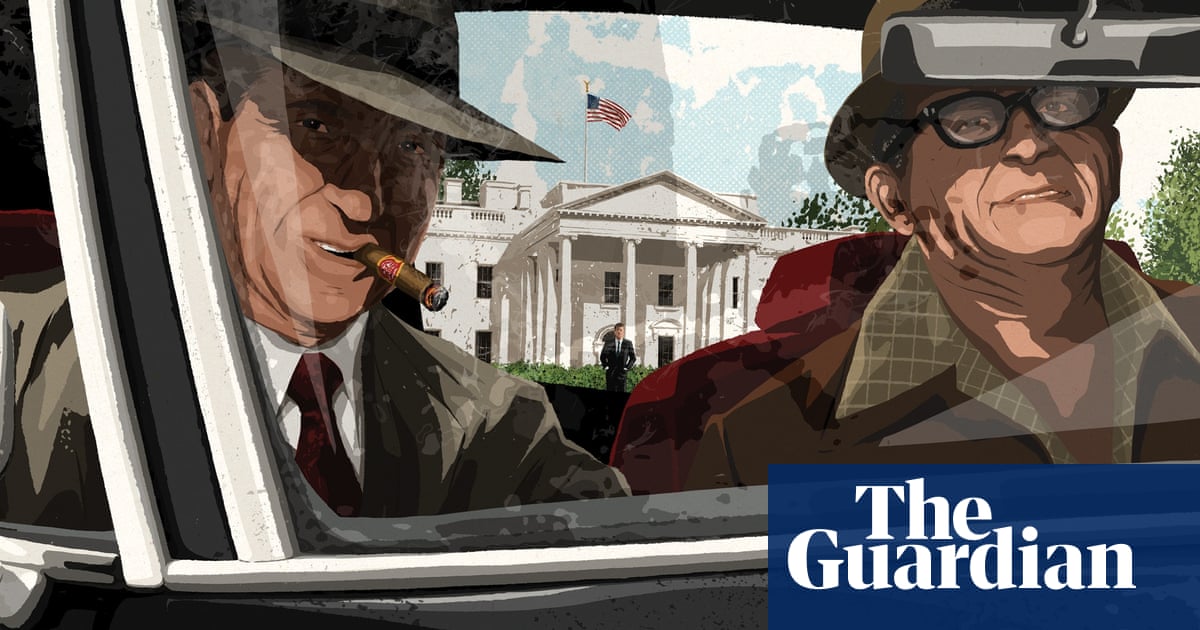Well, it worked for Richard Osman. Twenty-three-year-old Phyl, stuck in her parents’ house with an English degree and a zero-hours job in a sushi chain, is wondering how hard it could be to write a cosy crime novel. “Death in a Thatched Cottage? The Beach Hut Murders? The Flapjack Poisonings?” As another character points out, it’s bizarre that violent homicide has been rebranded as “cosy”. “It’s very British, in some indefinable way.”
Jonathan Coe, the laureate of Britishness, sets his 15th novel against a particularly wobbly period of national history: the short-lived ascendancy of Liz Truss and the death of the Queen in autumn 2022. It is indeed a happily playful and nicely satisfying slice of cosy crime, scattered with clues and red herrings, locked‑room mysteries, teetering cliffhangers and stagily withheld information. Before she is shocked out of her apathy by a sudden death, Phyl also considers trying her hand at the genres of dark academia and autofiction, and accordingly one section of the book is a memoir of mysterious goings-on in a Cambridge college in the 1980s, and another a report in real time of a search for a rare book, with two narrators who can’t agree on whether to use the present or the past tense (“fake and embarrassing”).
There’s a lot going on, and Coe marshals it all with ingenious ease. As ever, the real target – the savagery behind the cosiness – is the amoral individualism and free-market greed of those with power and privilege, first excoriated in 1994’s What a Carve Up! Here, rightwingers gather at a country house hotel for the TrueCon conference, delighting in the elevation of Truss and Kwasi Kwarteng. Alongside the culture war comedy of speeches such as “Britain’s Real Pandemic: The Woke Mind-Virus” is the serious business: big money jostling to get in on the carving up of the NHS.
Blogger Christopher Swann, a friend of Phyl’s mother from their Cambridge days, has been investigating the incursion of the far right into the political centre for decades, only to be dismissed as a paranoid fantasist: officially, the plans are never to privatise the NHS, only to “streamline” it. As we see in the memoir of another Cambridge friend, describing his culture shock on arriving there as a northern state school kid, these covert networks of power have been spreading since the days of Thatcher and Reagan.
The political mystery – is there a smoking gun that will reveal a plot to destroy the NHS – plays second fiddle to a literary one: the fate of an obscure writer from the 1980s. Peter Cockerill was that extremely rare phenomenon, a rightwing novelist, furious to be punished for his politics with exclusion from the glamorous gang of Rushdie, Amis, McEwan et al. And the solution to the mystery, as the title suggests, rests on a proof (copy) of My Innocence, the book in which he renounced fiction for good.
Coe enjoys himself satirising literary fashions, creative jealousy and the inevitable passing of time, with a bittersweet nostalgia for his own youth, when society was seduced by money, and the books world by Martin Amis’s Money. He gives himself a walk-on part in the Cambridge section as Tommy Cope, an ineffectual English student mainly known for writing incredibly bad poetry who later surprises his peers by achieving “modest success” with the “mildly satirical” Quite the Mash-Up.
Modest, mild: Coe is only too aware of his own understated – even cosy – reputation. His fiction has always ranged gentle, decent souls against headbangers and maniacs, and Phyl is no exception. Amid the literary fun and games, there’s a deeply sad note as she muses on the dog-eat-dog Britain wrought by the events of the last 40 years: “How is someone like me supposed to survive in a world like this? Everything that defines me is unsuited for it. My passivity. My idealism. My innocence. I just don’t have what it takes.” Phyl’s parents, too, are passive and shoulder-shrugging in the face of the political insult of Liz Truss: “Prime ministers come and go,” sighs her dad. The old have run out of energy and indignation; the young feel stuck in hopelessness and inertia, retreating from the world, as Phyl does, under the comfort blanket of endless episodes of Friends: a safe, pre-smartphone universe feeding off “nostalgia for a time before we were born”.
This is the context in which Coe plumbs the disconnect between Truss’s appointment as PM and the general bafflement that greets it, threading her speeches through the narrative along with the infuriating transport announcement “See it. Say it. Sorted”, a grating real-world soundtrack to his metafictional hijinks. His previous novel Bournville caught the national mood during historical highlights from the 1953 coronation to the wedding of Charles and Diana; here there’s a great set piece focusing on mourners filing past the royal coffin: the nation brought together by two of its favourite things, queueing and the Queen.
Another Coe tic is the piece of art, whether film or music, often glimpsed or heard in childhood and ever after treasured, coming to represent something more than mere nostalgia: a secret world behind the world. In Middle England it was the song Adieu to Old England: “One of the most eerie and melancholy English folk tunes ever written,” thinks Benjamin Trotter. Here it’s the “haunting and wistful” ballad Lord Randall, borrowed by Bob Dylan for the structure of A Hard Rain’s A-Gonna Fall, which raises goose bumps in all who hear it and is more deeply embedded in a central character than ever before.
Coe’s subject may be inertia and nostalgia, but The Proof of My Innocence is full of energy. It’s a madcap caper, a sideways memoir, a tricksy jeu d’esprit that is also a quiet defence of fiction in a post-truth age, and enormous fun to read.

.png) 2 months ago
14
2 months ago
14













































